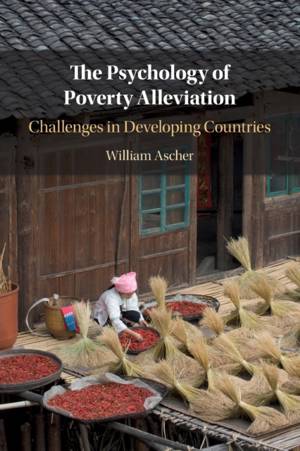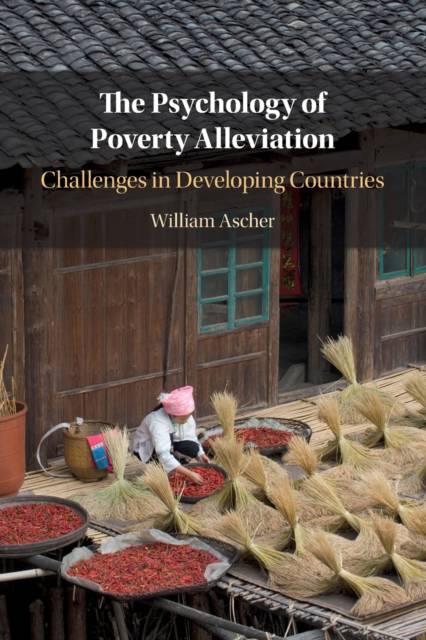
Bedankt voor het vertrouwen het afgelopen jaar! Om jou te bedanken bieden we GRATIS verzending (in België) aan op alles gedurende de hele maand januari.
- Afhalen na 1 uur in een winkel met voorraad
- In januari gratis thuislevering in België
- Ruim aanbod met 7 miljoen producten
Bedankt voor het vertrouwen het afgelopen jaar! Om jou te bedanken bieden we GRATIS verzending (in België) aan op alles gedurende de hele maand januari.
- Afhalen na 1 uur in een winkel met voorraad
- In januari gratis thuislevering in België
- Ruim aanbod met 7 miljoen producten
Zoeken
The Psychology of Poverty Alleviation
Challenges in Developing Countries
William Ascher
Paperback | Engels
€ 64,95
+ 129 punten
Omschrijving
In order to design, enact, and protect poverty alleviation policies in developing countries, we must first understand the psychology of how the poor react to their plight, and not just the psychology of the privileged called upon for sacrifice. This book integrates social and psycho-dynamic psychology, economics, policy design, and policy-process theory to explore ways to follow through on successful poverty-alleviation initiatives, while averting destructive conflict. Using eight case studies across Latin America, Southeast Asia, and South Asia, William Ascher examines successes and failures in helping the poor through affirmative action, cash transfers, social-spending targeting, subsidies, and regional development. In doing so, he demonstrates how social identities, attributions of deservingness, and perceptions of the policy process shape both the willingness to support pro-poor policies and the conflict that emerges over distributional issues.
Specificaties
Betrokkenen
- Auteur(s):
- Uitgeverij:
Inhoud
- Aantal bladzijden:
- 270
- Taal:
- Engels
Eigenschappen
- Productcode (EAN):
- 9781108794572
- Verschijningsdatum:
- 10/06/2021
- Uitvoering:
- Paperback
- Formaat:
- Trade paperback (VS)
- Afmetingen:
- 152 mm x 229 mm
- Gewicht:
- 399 g

Alleen bij Standaard Boekhandel
+ 129 punten op je klantenkaart van Standaard Boekhandel
Beoordelingen
We publiceren alleen reviews die voldoen aan de voorwaarden voor reviews. Bekijk onze voorwaarden voor reviews.









